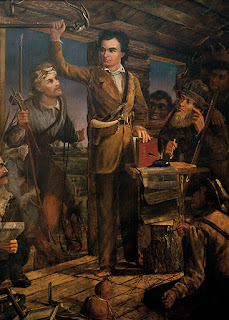The Ethics Of Liberty - Land Monopoly, Past And Present

The Ethics Of Liberty by Murray Rothbard Chapter 11 takes a deeper look at the subject of feudalism and shows its relevance in the current day. Rothbard also applies ideas from his chapter on criminality in describing to how to right the wrongs of modern day feudalism. For reference, feudalism is defined as " continuing aggression by titleholder of land against peasants engaged in transforming the soil. " To that Rothbard adds the concept of "land engrossing" and calls the combined practices land monopoly. Land engrossing involves keeping potential new owners out of raw land. Governments act in this role in order to grant privileges to specific individuals or groups. In other words they decide who gets to mix their labor with land in order to transform it into their legitimate property. The first example of land monopoly in the US that comes to my mind is the settlement of the Unassigned lands of Oklahoma in 1889. The US federal government cleared the land
